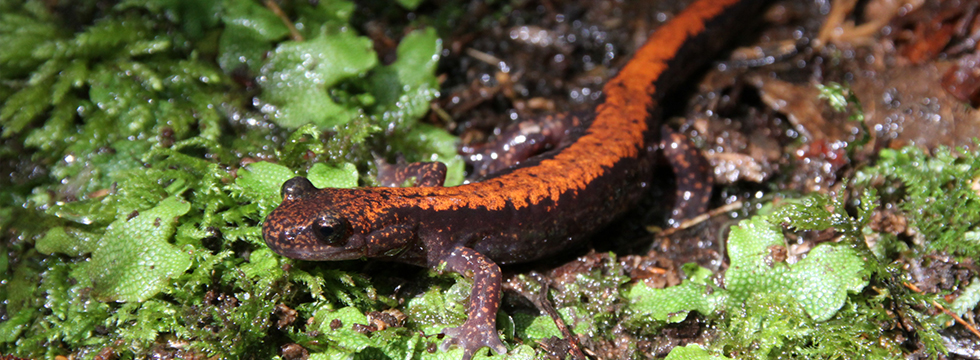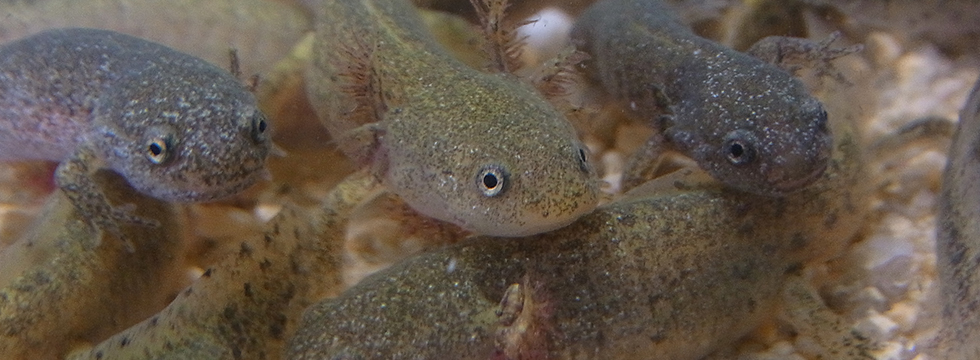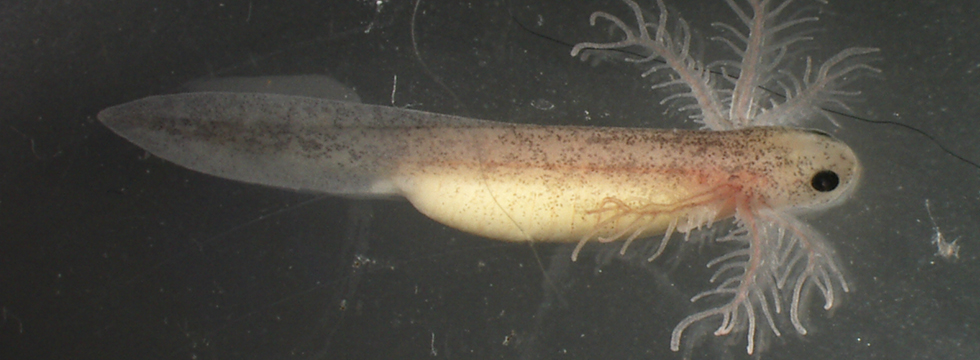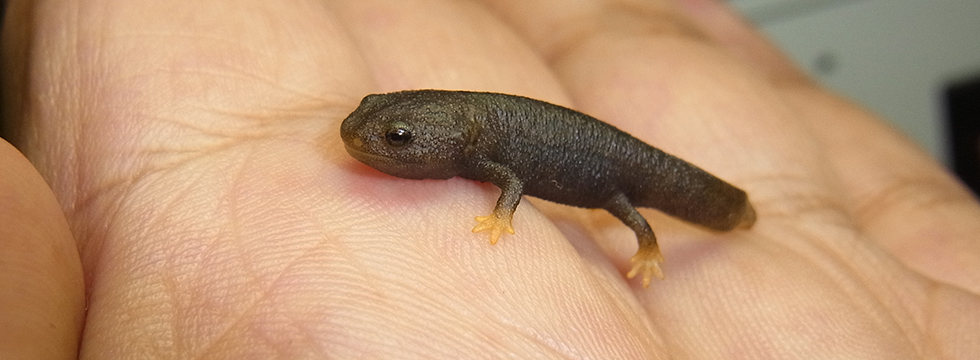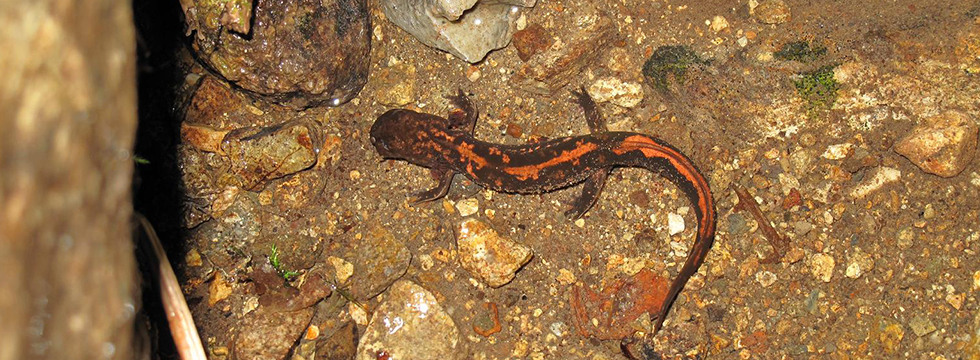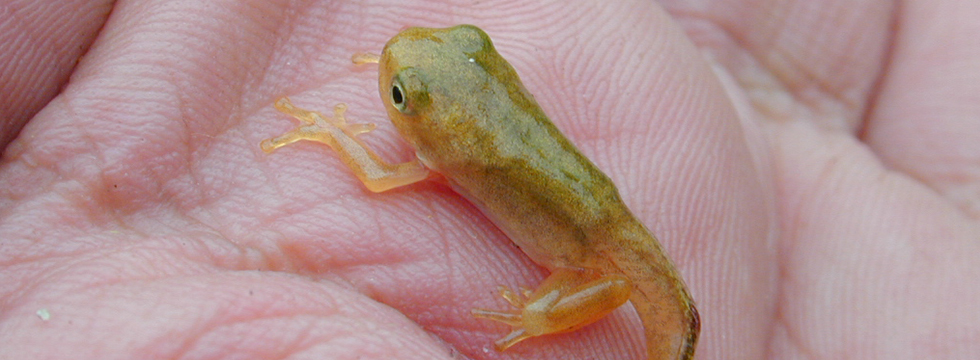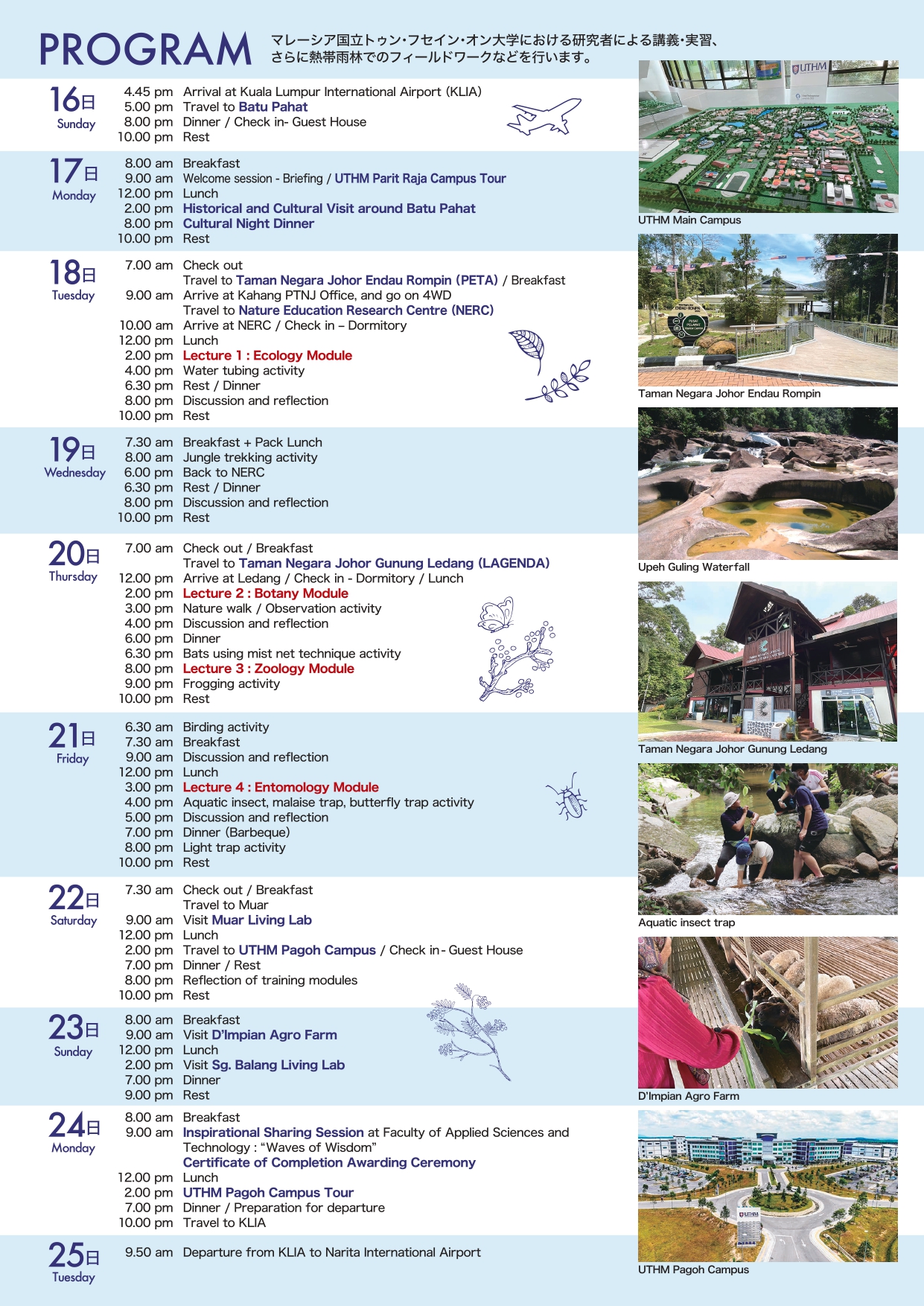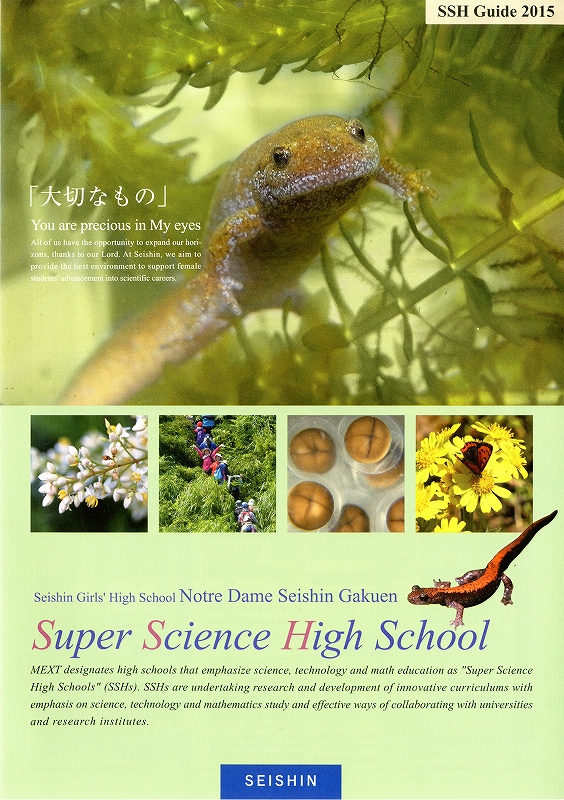●OK, today’s proposition is “We should stop keeping animals as pets in Japanese elementary schools.” Now, let’s begin the debate. First, we will hear the Affirmative’s position. Your time limit is 6 minutes. Go ahead.
【Affirmative Constructive Speech】6 min.
We think we should stop keeping animals as pets in Japanese elementary schools. We have two main reasons.
The first reason is that there are health problems.
Some students and teachers have allergies to animals. Recently, the number of people who have allergies to animals has been increasing. Animal hair, skin, spit or excreta cause nasal allergies, allergic dermatitis, asthma and so on. Above all these symptoms, asthma is the most serious. If someone suffers a severe asthma attack, they sometimes die from choking or heart failure. Actually, there is one case. A man in his forties, who had chronic asthma, was bitten by a hamster. The hamster’s spit that entered into his body from the wound caused a shock symptom to him. He had a severe asthma attack, and few hours later, he died. There are such serious risks when allergic patients have contact with animals.
Besides, infections caused by animals are also dangerous. For example, bird flu spread all over the world in 2004. It is very common to keep birds in schools, but at that time, many schools stopped keeping birds to avoid the danger. In another case, we can get a “parrot disease” by breathing dried fecal dust when we clean birdhouses. If this disease becomes severe, it can possibly lead to death.
There are such dangers in keeping animals.
The second reason is that there are management problems.
In 2008, our school sent out questionnaires about animals kept in schools to 435 elementary schools in Okayama Prefecture, and 83 percent of them, 360 schools answered. In the questionnaire, we asked, “Do you have any troubles in keeping animals?” The top answer to this question is that they have troubles in animal management during long vacations. We also asked who takes care of the animals during holidays, and 78 percent answered, “Only Teachers do.” According to these answers, we can say that currently animals are taken care of mainly by teachers in most schools, and teachers feel it is troublesome.
To the question about the troubles in keeping animals, the second largest number of schools answered that teachers also don’t know how to keep animals. Despite many elementary schools keep animals, there is no class in Japanese elementary school teacher training course to teach how to keep animals properly, how animals affect children or what meanings are there in keeping animals. So, it’s natural that teachers don’t have correct knowledge about that. However, this has been causing a lot of problems. For example, rabbits are kept in wrong ways in many schools. According to the results of the questionnaire survey, 65 percent of the schools keep rabbits without separating males and females. 91 percent keep uncastrated male rabbits. As a result, rabbits breed too much, and it cause problems. One elementary school in Okayama keeps as many as 40 rabbits! Keeping animals more than necessity makes the management harder and has a bad influence on the environment for them. In addition, some schools said that they are throwing away dead animals as garbage, because they don’t know how to deal with them. How will children feel if they know this? There can be no good influence.
Like this, keeping animals in elementary schools is quite a burden for schools and teachers. Therefore, we insist that we don’t need to keep animals in Japanese elementary schools with all these risks.
○Now, members of the Negative Side, you may ask questions regarding their position. And Affirmative Side, please respond to their questions. The time limit is 2 minutes. Go ahead.
【Cross Examination】2 min.
N:OK. We have three questions. First, do you think that people who have allergies to animals can never have contact with animals?
A:Yes. They cannot have contact with them in view of safety.
N:Second, don’t we have any ways to prevent infections caused by animals, such as a parrot disease?
A:Yes, we have.
N:Third, about animal management, are there any ways to improve it?
A:Yes. There are some ways, but it is difficult to innovate them.
N:That’s all. Thank you very much.
A:Thank you.
●Next, we will hear the Negative Side’s position. Your time limit is 6 minutes. Go ahead.
【Negative Constructive Speech】6 min.
We think that we should never stop keeping animals as pets in elementary schools. We have two main reasons.
The first reason is that keeping animals can help children understand the preciousness of life.
In keeping animals, we can contact with animals directly, take care of them, and experience the joy of birth of a new life or sorrow of death by our side. It was in the Meiji era that Japanese elementary schools started to keep animals. It has a long history of about 100 years and it is evidence that we can understand the preciousness of life and engender a sense of caring of the week through the experience of keeping animals. Even now the Ministry of Education, Culture, Sports, Science and Technology is recommending in its curriculum guideline that elementary schools keep animals as part of education of the mind.
In 2000, a survey carried out and included 192 elementary school students. In the survey, they were asked, “What do you think if you see your friend bullied?” and more than half of those who had experience in keeping animals answered they would like to help them. However, more than half of those who had no experience in keeping animals answered they would just feel sorry. Besides, another survey shows that children who have experienced death of their favorite pets will feel negative about suicide. The results of these surveys also tell us that the experience of keeping animals makes children understand the preciousness of life and engender a sense of caring. Recently, bullying or offenses of a heinous nature committed by juveniles are increasing. This is an indication of young people’s disrespecting life or ignoring human rights, but learning the preciousness of life from a young age can help prevent these crimes.
The second reason is that keeping animals is highly effective in education.
An animal is not just a “thing.” If we treat them in wrong ways or leave them without caring, they will die. Unlike nonliving things, there can be irreversible consequences if we treat them only for our own convenience. Having contact with animals, children can begin to realize that. They can learn a sense of responsibility in taking care of them in the proper way. They can also learn cooperation through taking care of them together with their friends and teachers. Moreover, while they are taking care of them, they come to love them, and they will think with serious mind how they can please their favorite animals. And naturally, they can learn sympathy for others and sharpen their eyes for others.
By keeping animals, which are not nonliving things, children can learn responsibility, cooperation and observation power. Animals are the best education material to teach these things.
Under ordinary circumstances, respect for life or sympathy to others should be cultivated at home from infancy. Recently, however, environment surrounding children has been changed because of the trend of nuclear families or families with fewer children, and people’s relationships are getting poorer. Also, there are many families who cannot keep animals at home because of housing situation, and it is getting difficult to teach these things at home. Under such circumstance, we need to make children understand preciousness of life and make them respect life thorough keeping animals in schools, not at home.
Therefore, we insist that we should never stop keeping animals in Japanese elementary schools.
○Now, members of the Affirmative Side, you may ask questions regarding the Negative’s position. And Negative Side, please respond to their questions. The time limit is 2 minutes. Go ahead.
【Cross Examination】2 min.
A:OK. We have three questions. First, let us confirm one thing. You think that we can definitely make children understand the preciousness of life through keeping animals, right?
N:Yes. We think so.
A:Secondly, in order to make children understand the preciousness of life, is it absolutely necessary to keep animals in schools?
N:Yes. That’s right.
A:Lastly, do you have any data which suggests that keeping animals prevents crimes?
N:We don’t have specific data, but a study from America shows that there is a cause-and-effect relationship between animal abuses and heinous crimes.
A:That’s all. Thank you very much.
N:Thank you.
●Now, we will move on to both side’s rebuttal speeches. First, we will hear the Affirmative Side’s rebuttal of the Negative’s position. The time limit is 5 minutes. Go ahead.
【Affirmative Rebuttal】5 min.
We would like to counter the Negative Side’s argument on three points.
First, the Negative Side said, “We can definitely make children understand the preciousness of life through keeping animals,” but if we keep them in wrong ways, just the opposite occurs. As we said in the first speech, animals in schools are not well managed in this situation. For instance, in 1997, there was an incident in an elementary school in Saitama prefecture in which a teacher buried live baby rabbits because they had problems with them breeding too much. This incident was reported on television shows and newspapers. Later, as well, similar incidents have occurred in many parts of Japan. Also, some schools keep animals under horrible conditions because of their sloppy management. When children find out that lives of animals are treated irresponsibly for humans’ convenience, they will be hurt, and will also become insensitive to death. In such situations, keeping animals by main force can never make children understand the preciousness of life, and in fact, it encourages disrespect for life.
Second, you said, “It is absolutely necessary to keep animals in schools in order to make children understand the preciousness of life,” but is that really true? You know that some schools don’t keep any animals, and not all the countries recommend that elementary schools keep animals. In those places, is it impossible to teach children about life? We think that without keeping animals, we can teach them enough about life by giving them knowledge from books or videos, and they can also learn those things from relationship to other people in schools, such as friends and teachers.
And third, about educational effect, you said, “Children can learn a sense of responsibility in taking care of animals.” But as the questionnaire survey shows, currently animals are taken care of mainly by teachers in most schools. In those schools, for example, children don’t need to take care of them during holidays, because teachers do it for them. It is difficult to learn a sense of responsibility in such situations.
Finally, we would like to answer to the question from your side in a little more detail.
We said that we have some ways to prevent infections caused by animals. To prevent virus entry from our eyes or mouth, we must put on goggles, masks or gloves. The Negative Side said that we can learn about life by having direct contact with animals, but in this way, we cannot contact with animals “directly,” and it becomes meaningless to keep animals.
Therefore, we think there is no such merit in keeping animals in schools.
○Well, members of the Negative Side, you may ask questions regarding the Affirmative’s rebuttal. And Affirmative Side, please respond to their questions. The time limit is 2 minutes. Go ahead.
【Cross Examination】2 min.
N:We have two questions. Firstly, do you admit that we can learn the preciousness of life through keeping animals in a proper way?
A:Only in the case that animals are kept under perfect management, we can say “Yes.”
N:Secondly, do books or videos as education materials have as much value as life of animals?
A:Even if they don’t have just as much value as life of animals, they can function well enough as education materials.
N:That’s all. Thank you very much.
A:Thank you.

